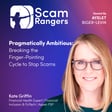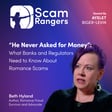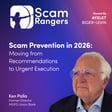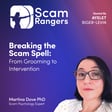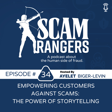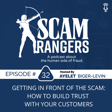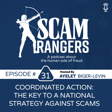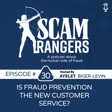
The Australian Formula for Tackling Scams: A Shared Responsibility Approach, A conversation with Toby Evans, Head of Economic Crime, Australian Payments Network
In this episode, talk to Toby Evans, Head of Economic Crime, Australian Payments Network to explore the newly introduced Australian scams prevention framework and its implications for various industries. We discuss the importance of collaborative efforts across sectors, including banking, telecommunications, and digital platforms, in addressing the growing threat of scams.
Key Themes:
- New Legislation Overview: Introduction of a draft scams prevention framework open for comments until October 4, 2024.
Key principles include scam prevention, detection, and disruption. - Scope Beyond Banks: Emphasis on the involvement of multiple sectors, including telecommunications and digital platforms.
Recognition of the shared responsibility to combat scams. - Significant Penalties: Overview of substantial penalties for non-compliance, with fines reaching over $50 million for severe breaches.
Importance of companies taking proactive measures against scams. - Collaborative Approach: Insights from Toby Evans on the necessity for all industries to work together in the fight against scams.
Discussion on how a unified front can enhance protection for consumers. - Proactive Measures and Strategies: Importance of businesses implementing robust anti-scam strategies.
Encouragement for sharing intelligence and aligning efforts to create a safer environment.
Follow Toby On LinkedIn: https://www.linkedin.com/in/toby-evans-635661231/
This podcast is hosted by Ayelet Biger-Levin who spent the last 15 years building technology to help financial institutions authenticate their customers and identify fraud. She believes that when it comes to scams, the story starts well before the transaction. She has created this podcast to talk about the human side of scams, and to learn from people who have decided to dedicate their lives to speaking up on behalf of scam victims and who take action to solve this problem. Be sure to follow her on LinkedIn and reach out to learn about her additional activities in this space. h
ttps://www.linkedin.com/in/ayelet-biger-levin/
ScamRanger: https://scamranger.ai/
04 Sep 2024 · 46 minutes
